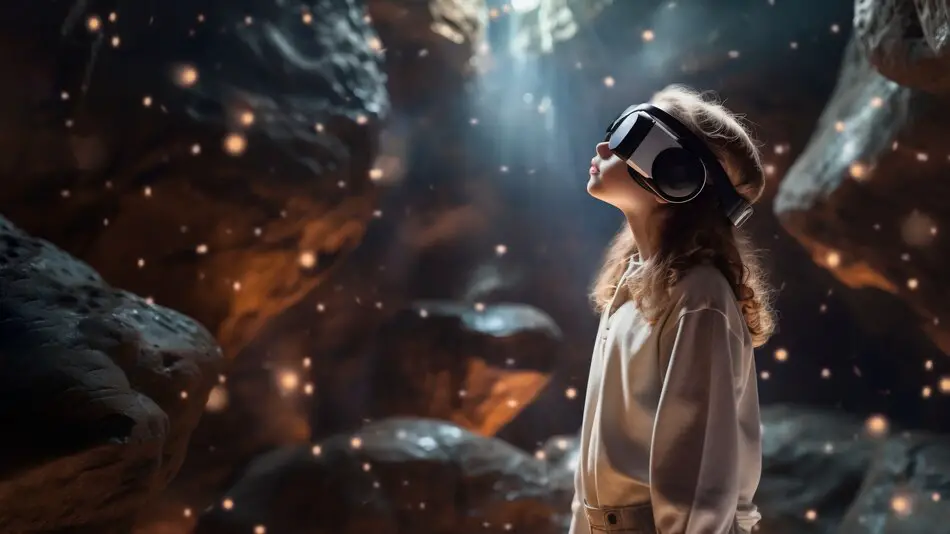Humanity faces unparalleled space technology and exploration advances in the vast universe. The future will change how humans traverse and interpret the cosmos from breakthrough propulsion technologies to AI in robotic missions. Innovative resource use and sustainable colonization enable human expansion beyond Earth. As we explore these frontiers the potential for discovery and growth into the unknown grows.
Advancements In Propulsion Systems
Space technology and exploration will develop propulsion systems. Space missions have relied on chemical rockets but new technology might change how we explore the universe. The development of ion propulsion technologies is promising. Ion propulsion employs electric fields to accelerate ions delivering a more efficient and sustained push over extended distances than chemical rockets. This technology might speed up travel to other planets and beyond unlocking new exploratory possibilities.
The idea of nuclear thermal propulsion is exciting. Nuclear reactions heat propellant in NTP systems boosting thrust and efficiency. This might speed interplanetary travel and ease long duration mission logistics. Future spacecraft might use solar and nuclear power to lengthen missions and reduce Earthbound resource use.
Robotic Exploration And Artificial Intelligence
Robotic exploration and AI will shape space exploration. Advanced AI enabled autonomous robots can execute difficult jobs on planetary surfaces or in outer space. These robots can perform experiments, repair equipment and build dwellings enabling human colonization of distant planets.
AI improved data processing allowing quicker decision making and real time mission parameter modifications. Machine learning algorithms can study massive volumes of data from space observatories, rovers and satellites to reveal the universe’s secrets. As AI evolves more innovative flexible spacecraft that can self navigate and plan will improve mission safety and success.
Sustainable Space Exploration And Colonization Efforts
Sustainable space exploration and colonization are vital as humanity seeks long term life beyond Earth. Creating closed loop life support systems that recycle air water and nutrients to maintain human life in space is crucial. Scientists may develop genetically engineered crops that grow in space giving astronauts and future colonies a sustainable food supply.
3D printing can create tools, replacement parts and even dwellings from local materials on distant planets or asteroids. This decreases space mission costs and complexity and facilitates Earth independent colonies. With this technology humanity can build permanent colonies in space assuring our species’ survival and growth.
Interplanetary Communication And Navigation Systems
Interplanetary communication and navigation systems are essential for space travel. Radio waves degrade over long distances causing problems for traditional communication. Future missions may use laser communication systems with faster data transfer cost and reducing latency for real time spacecraft management and large scale scientific data transmission. Quantum communication advances may enable secure unhackable interplanetary communications of sensitive data.
Navigation systems are crucial when missions reach further and more complicated locations. Pulsars and quasars provide stable backups to GPS like systems and lessen dependence on Earth bound equipment. Satellite autonomy is improved by machine learning algorithms that forecast and react to changing space environments allowing accurate trajectory modifications and safe navigation around celestial obstructions. These breakthroughs improve exploration and set the framework for human presence in the solar system and beyond.
Space Mining And Resource Utilization
Space mining and resource use are essential to sustainable space exploration and colonization. The copious metals and water ice on asteroids might power future voyages and sustain off world industry. Robotic and autonomous mining technologies provide low gravity exploration and extraction reducing risk and optimizing resource production.
In situ resource utilization ISRU turns celestial body raw resources into fuel oxygen and construction materials. By using local resources ISRU minimizes the logistical load of transferring supplies from Earth and enables long term human life on the Moon Mars and beyond. 3D printing makes on site assembly of housing and spacecraft components using locally obtained materials possible. These advancements cut costs and improve space mission sustainability and self sufficiency laying the groundwork for alien economies.
Ethical And Legal Considerations In Space Exploration
As humanity advances into space ethical and legal issues grow more complicated. International treaties regulate celestial body exploration and resource use to avert disputes and foster cooperation among spacefaring governments. International cooperation is needed to resolve conflicts over extraterrestrial resource ownership and property rights.
Space exploration influence on celestial ecosystems and the pollution of pristine places with terrestrial bacteria raise ethical considerations. Planetary protection guidelines need spaceship cleanliness to prevent biological contamination during exploration missions. Providing fair access to space technology and benefits while resolving socio economic inequities on Earth offers ethical problems that require global discourse and consensus building.
Navigating these ethical and legal landscapes is essential for responsible and sustainable space exploration preservation of the celestial environment and fair sharing of space advantages for future generations.
Conclusion
Space technology and exploration have great potential and complexity. AI enabled propulsion technologies, robotic missions, sustainable colonization and ethical issues put humanity on the threshold of historic successes in exploring and inhabiting the universe. By innovating and collaborating internationally and tackling difficulties with foresight and accountability we can make space a sustainable extension of human civilization not merely a frontier for exploration.




